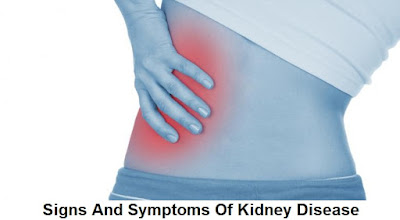What is kidney disease?
In people with kidney disease, the kidneys do not work properly. Many kidney diseases are insidious because they cause no symptoms for a long time. Most people only get complaints if the kidneys are already very ill and could not recover.
There are a lot of different kidney diseases. Examples include kidney stones, kidney inflammation and cystic kidneys filter.
The kidneys are important for the body. If the kidneys are very ill and no longer be healthy, the body can get all kinds of problems.
What causes kidney disease?
Kidney disease can occur in several ways:
- There are diseases that cause the kidneys to malfunction. Eg diabetes mellitus, high blood pressure, Alport syndrome and systemic lupus erythematosus. Something is not right in the body and therefore the kidneys are sick.
- The kidneys themselves may also be ill. Examples of this kind of diseases are renal polycystic kidney disease, kidney filter inflammation, nephrotic syndrome, and kidney cancer. The cause lies then in the kidney itself. Why the kidneys are sick varies by disease.
- Sometimes the kidneys go bad work by a disease in the urinary tract. Examples include bladder infection and kidney stones.
What are the signs and symptoms of kidney disease?
Certain renal diseases causing pain. For example, kidney stones can cause severe abdominal cramps. Even with a kidney infection, you may experience pain and fever.
But most kidney diseases cause few or no symptoms. Many people also have kidney disease without knowing it. The body gets only problems if the kidneys are only a third of work. What symptoms can you get?
- You keep moisture in your arms, legs and / or face.
- You have a dry mouth.
- You urinate more or less than usual. Also, the color of the lake may change. Sometimes the urine smells different than usual if he sees foaming out.
- You feel tired and sick. You can also suffer from itching, muscle cramps, forgetfulness, nausea and dry skin. This is because waste products accumulate in your body.
- You have anemia.
- You have high blood pressure.
How is kidney disease diagnosed?
You have certain symptoms that may indicate kidney disease? Then the doctor takes your blood and urine. Does the doctor here that your kidneys are not working properly, you will get a referral to a specialist. This is usually a nephrologist, a doctor who specializes in kidney diseases. Or a urologist, a doctor who knows all of the kidneys and urinary tract.
The specialist will ask you to the history of your symptoms. After that you will investigate one or more. The most common tests for the kidneys are:
- urinalysis;
- blood test
- X-ray examination of the kidneys;
- ultrasound of the kidneys;
- kidney biopsy;
- CT scan;
- MRI scan ;
- X-ray examination of the blood vessels;
What is the treatment for kidney disease?
Most people with kidney disease get first medication or diet. The intention is that the kidneys are healthy again, or at least not continue to deteriorate.
Whatever diet you get depends on the kidney you:
- a low-salt diet for high blood pressure or if you hold too much moisture;
- a protein-enriched diet in nephrotic syndrome;
- a protein restricted diet in renal filter inflammation.
When peritoneal dialysis is basically no need diet.
Sometimes medication and diet does not help. The kidneys work less and less well. The doctor calls it at some point 'renal failure': the kidneys are working really too little. You then maybe other medications.
If only work a tenth of the kidneys, a more serious treatment is needed. You will receive dialysis and you will probably be on the waiting list for a kidney transplant. The dialysis unit or the donor kidney takes over the operation of your own kidneys over. Without this treatment, poisons the body itself. That is deadly.
It is also possible that your kidneys are working temporarily very poor. You will also get some time on dialysis, so the kidneys can be better. Dialysis does not always mean that the kidneys remain sick.
Can you get children with kidney disease?
People with poorly functioning kidneys are less fertile. That applies to men and women. If the kidneys are not working properly, the hormone production is, in fact not quite right.
The chance of pregnancy is dependent on the severity of the kidney disease. Women whose kidneys are working reasonably well, just be indisposed. They have an almost normal chance to conceive. Women with more severe renal disease are sometimes long time period. Women with very poor kidney function should dialysis. They only have a 1 in 100 chance of getting pregnant.
Also, men with kidney disease may be less fertile. They may optionally seed against freezing, to allow for later artificial insemination.
Whether the pregnancy is successful also depends on the severity of the kidney disease. With severely reduced kidney function, the risk of miscarriage or premature birth size.
Certain problems (such as high blood pressure) may worsen during pregnancy. You are also more likely to have preeclampsia. It is important the risks of pregnancy for mother and child well to weigh. Your doctor can help you.



